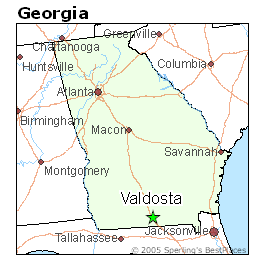In light of reading "Under Fire: An American Story" by Oliver L. North concerning the Reagan administration's
cover-up over the Iran-Contra Scandal, it has brought up memories of a personal
cover-up I had of my own the summer after I graduated high school.
Back when I was living in Boise Idaho, and this was six months before I served my mission, I called up a friend one evening, to see what activities we could do together. He asked me if I wanted to go
tubing in a
canal. I agreed to this activity without putting much thought to it. I changed into the appropriate attire and rendezvoused with a few buddies at this friend's house. His mother asked what we were doing, and once he mentioned that we were
tubing in a
canal she showed her objection to the activity, but he told her that he and others do it all the time, and it wasn't that
dangerous.
So off my friends and I went, along with a group of high school kids who wanted to tag along with us. We parked in the Boise Town Square Mall parking lot, us fellas took off our shirts and made it look as if we were merely jogging to the cars passing by. We were trying to get the
canal quietly, but high schools kids love to make noise. When we got to entrance of the
canal underpass (which was underneath a highway), we had a lookout, and my friends told the high school kids to shut up. I was just going along with the ride at this point.
But once I realized that we had a lookout for cops as we did our activity, I said to him: Is this
illegal? But he only told me to get in the
water, as I was removing
my socks and shoes from my feet.
We all finally went into the
canal and into the
dark underpass. Upon realizing there were
no lights in this underpass and rushing with fast water, I became really scared. While passing through the canal, I lost my socks and one shoe.
At the end of the dark underpass, we were supposed to land on the left-side of the
canal, which most of did, but I didn't. Being a
bad swimmer, and weak against the
strong current, I went farther down the
canal than was planned. A friend or two had to
swim after me and we ended up pulling out on the right-side of the canal instead. I was rather shaken up from the experience. Everyone else wanted to go do it again, but I stayed with the cars instead.
We all went home in two seperate cars, after everybody was done with this activity. I was given a ride home by two friends, but on the way there I insisted that we go to Walmart so I could
buy new shoes. I knew that with my
socks and one shoe missing my dad would realize that we did something we shouldn't have, and I did not want my dad to know what we had just done!
Both of my friends were wanting to go inside Wal-Mart with me, but an old man in the entrance wouldn't let me pass because I went in without shoes. So, I borrowed a friend's sandals so I could buy my own new shoes. Fortunately
I had 20 dollars on me, and they had the
exact same shoes I was looking for. The only difference would be that
these shoes were clean.
Once my friend and I got back into the car,
I put the new pair of shoes on, and put the
one old shoe in the shoe box, and I had
my friends take the shoe box with them so as to
get rid of the evidence that this ever happened. Thus, I made my
cover-up, and I had help to do it!

The truth of the matter came out a couple of months later when I was getting my mission papers filled out, and I told my bishop about this incident. He told me that this was an
honesty issue that I needed to
come forward to my dad about it. I pulled my dad into my bedroom to finally confess to him what my friends and I had done. I started out by telling him that
the shoes that I was wearing were not the same ones that I left home with that night. He wasn't angry, but was rather appreciative that I finally came forward about this with him, and although
I was dishonest about what happened that night, he wanted me to consider the fact that what my friends and I had done that night was
dangerous and could have led to
disastrous consequences. My father never yelled at me over it, and I'm sure some part of him wanted to, but I believe he didn't simply for the fact that I had learned my lesson to not ever do such activities without having thought about the consequences of what might happen, and I certainly haven't such a thing like that again.













